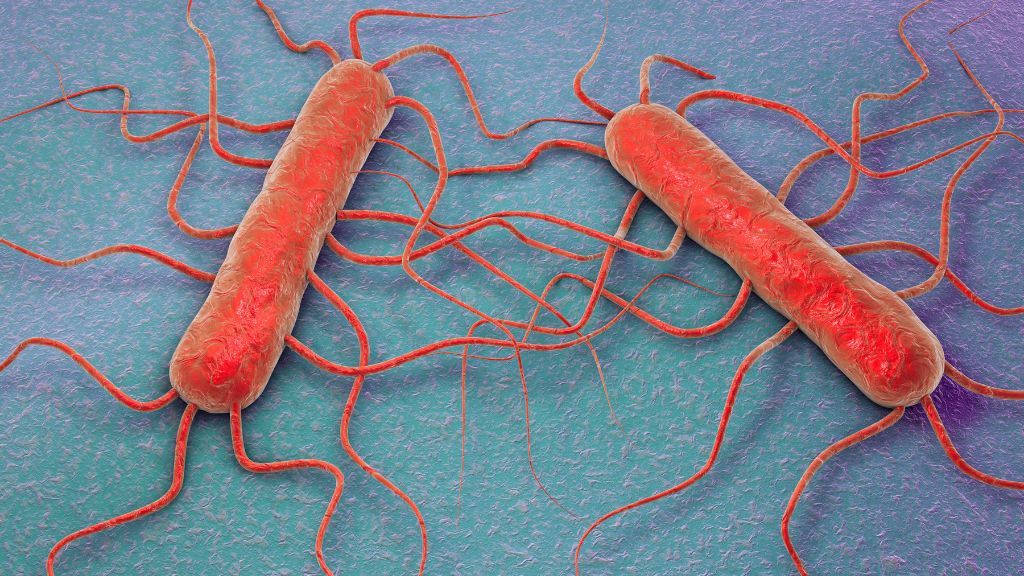Listeria outbreak tied to 22 hospitalizations, 1 death
The bacterial infection can be fatal.

Editor's note: On July 2, the CDC reported that the outbreak is linked to an ice cream brand produced and sold in Florida.
A Listeria outbreak has sickened 23 people in the U.S., resulting in 22 hospitalizations and one death, the Centers for Disease Control and Prevention (CDC) announced Thursday (June 30).
These cases occurred between Jan. 24, 2021 and June 12, 2022, with 16 of the 23 cases occurring this year, the agency reported.
Listeriosis is caused by a bacterium called Listeria monocytogenes, which can be found in soil, water, moist environments, decaying vegetables and dead animals, according to the Food and Drug Administration (FDA). The bacteria generally gets transmitted to people through contaminated food, as products can pick up the microbe at any stage of harvesting, processing or transport and the bug can survive and grow under refrigeration and other food preservation measures.
In the past, listeriosis outbreaks in the U.S. have been linked to a wide range of products, including unpasteurized milk, ice cream, smoked fish, hot dogs and raw or processed vegetables, among others. However, the CDC has not yet identified the food source of the current outbreak.
Cases have been documented in 10 states, including Colorado, Georgia, Illinois, Kansas, Massachusetts, Minnesota, New Jersey, New York, Pennsylvania and Florida, where 12 out of the 23 cases occurred. In total, 20 of the sickened people reported living in or traveling to Florida in the month before they got sick.
Related: 28 devastating infectious diseases
Sign up for the Live Science daily newsletter now
Get the world’s most fascinating discoveries delivered straight to your inbox.
In general, L. monocytogenes is most likely to cause severe illness during pregnancy, as well as in newborns, people ages 65 and older and people with weakened immune systems, the CDC states. People outside these demographics can still contract the infection but rarely become seriously ill.
Symptoms typically appear within two weeks of eating contaminated food — although they can start as early as the same day or as late as 70 days after — and once they arise, symptoms may last for days or weeks. The infection can be treated with antibiotics.
Listeriosis may cause fever, muscle aches, headaches, a stiff neck, confusion, loss of balance and convulsions, the CDC states. The infection can also cause common food poisoning symptoms, such as nausea, vomiting and diarrhea. In severe cases, particularly in elderly and immunocompromised people, the bacteria can infect the bloodstream (sepsis) or brain (meningitis and encephalitis), according to the CDC.
While similar symptoms may arise during pregnancy, the main concern is that listeriosis can also lead to serious pregnancy complications, including miscarriage, stillbirth and premature delivery. Babies born with listeriosis infections can develop serious complications that require immediate treatment and can result in lifelong health issues or death, the FDA warns.
Five pregnant people became sick during the current outbreak, and one of these illnesses resulted in a "fetal loss," the CDC reported.
To slow down or prevent the growth of L. monocytogenes in ready-to-eat refrigerated or frozen foods, the FDA recommends setting your refrigerator to 40 degrees Fahrenheit (4 degrees Celsius) or colder and the freezer to 0 F (-18 C) or colder.
Other preventative measures include:
- Washing the inside walls and shelves of the refrigerator, cutting boards, countertops and utensils that may have contacted contaminated foods; then sanitizing them with a solution of one tablespoon of chlorine bleach to one gallon of hot water; and drying them with a clean cloth or paper towel that has not been previously used.
- Wiping up spills in the refrigerator immediately and cleaning the refrigerator regularly.
- Washing your hands with warm water and soap for at least 20 seconds before and after handling food and following any cleaning and sanitation process.
Separate from the FDA's investigation into the ongoing listeriosis outbreak, on June 30, A&M Farms of Lyons, Georgia voluntarily recalled some of its whole Vidalia onions, sold under the brand name Little Bear, citing potential contamination with L. monocytogenes, the FDA reported. Again, Little Bear onions have not yet been linked to the ongoing outbreak, and so far, no illnesses or adverse events have been reported in connection to the onions.
Originally published on Live Science.

Nicoletta Lanese is the health channel editor at Live Science and was previously a news editor and staff writer at the site. She holds a graduate certificate in science communication from UC Santa Cruz and degrees in neuroscience and dance from the University of Florida. Her work has appeared in The Scientist, Science News, the Mercury News, Mongabay and Stanford Medicine Magazine, among other outlets. Based in NYC, she also remains heavily involved in dance and performs in local choreographers' work.
Flu: Facts about seasonal influenza and bird flu
What is hantavirus? The rare but deadly respiratory illness spread by rodents










